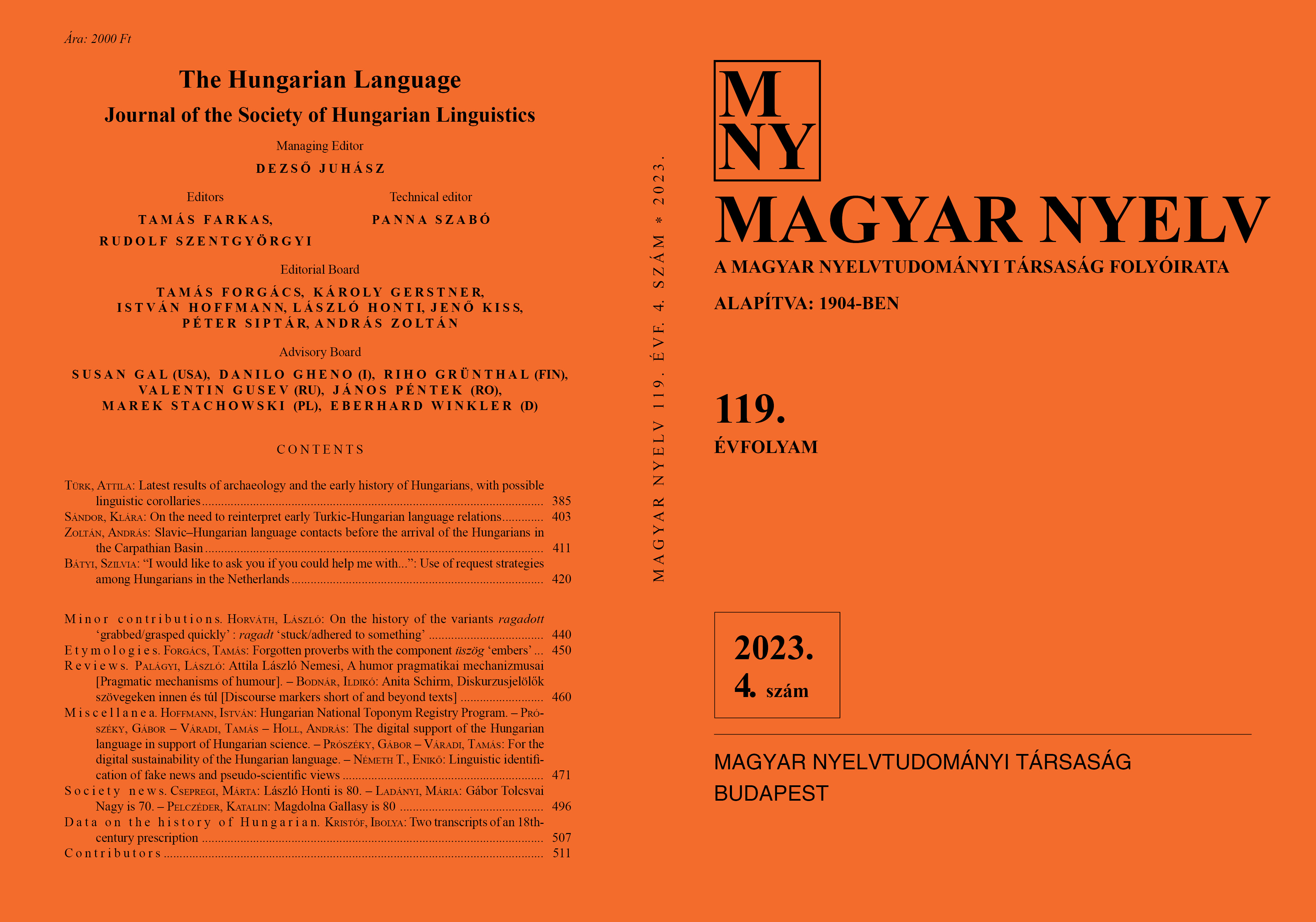“I would like to ask you if you could help me with...”
Use of request strategies among Hungarians in the Netherlands
DOI:
https://doi.org/10.18349/MagyarNyelv.2023.4.420Keywords:
request strategies, indirect, direct, external modifiers, L1 attritionAbstract
Moving to a new language environment, as a result of the acculturation processes, the linguistic expression also changes at the pragmatic level. There are many theoretical frameworks and empirical research on the impact of L1 on the development of L2 pragmatic skills, however, the number of studies examining pragmatic changes as a result of language attrition is scarce. This study examined the pragmatics of requests among Hungarians in the Netherlands using an oral discourse completion task. Based on the results, it can be concluded that the target group used significantly more indirect strategies than the Hungarian control group, and the direct strategies were complemented with external modifiers. The small-scale study revealed that the target group's request strategies are more similar to the Dutch than to the Hungarians in Hungary (Le Pair 2005).
Downloads
Published
Issue
Section
License
Copyright (c) 2023 Szilvia Bátyi

This work is licensed under a Creative Commons Attribution-NonCommercial-NoDerivatives 4.0 International License.
Magyar Nyelv is a Diamond Open Access periodical. Documents can be freely downloaded and duplicated in an electronic format, and can be used unchanged and with due reference to the original source. Such use must not serve commercial purposes. In the case of any form of dissemination and use, Hungarian Copyright Act LXXVI/1999 and related laws are to be observed. The electronic version of the journal is subject to the regulations of CC BY-NC-ND (Creative Commons – Attribution-NonCommercial-NoDerivatives).
The journal permits its authors, at no cost and without any temporal limitation, to make pre-print copies of their manuscripts publicly available via email or in their own homepage or that of their institution, or in either closed or free-for-all repositories of their institutions/universities, or other non-profit websites, in the form accepted by the journal editor for publication and even containing amendments on the basis of reviewers’ comments. When the authors publicize their papers in this manner, they have to warn their readers that the manuscript at hand is not the final published version of the work. Once the paper has been published in a printed or online form, the authors are allowed (and advised) to use that (post-print) version for the above purposes. In that case, they have to indicate the exact location and other data of the journal publication. The authors retain the copyright of their papers; however, in the case of an occasional secondary publication, the bibliographical data of the first publication have to be included.



